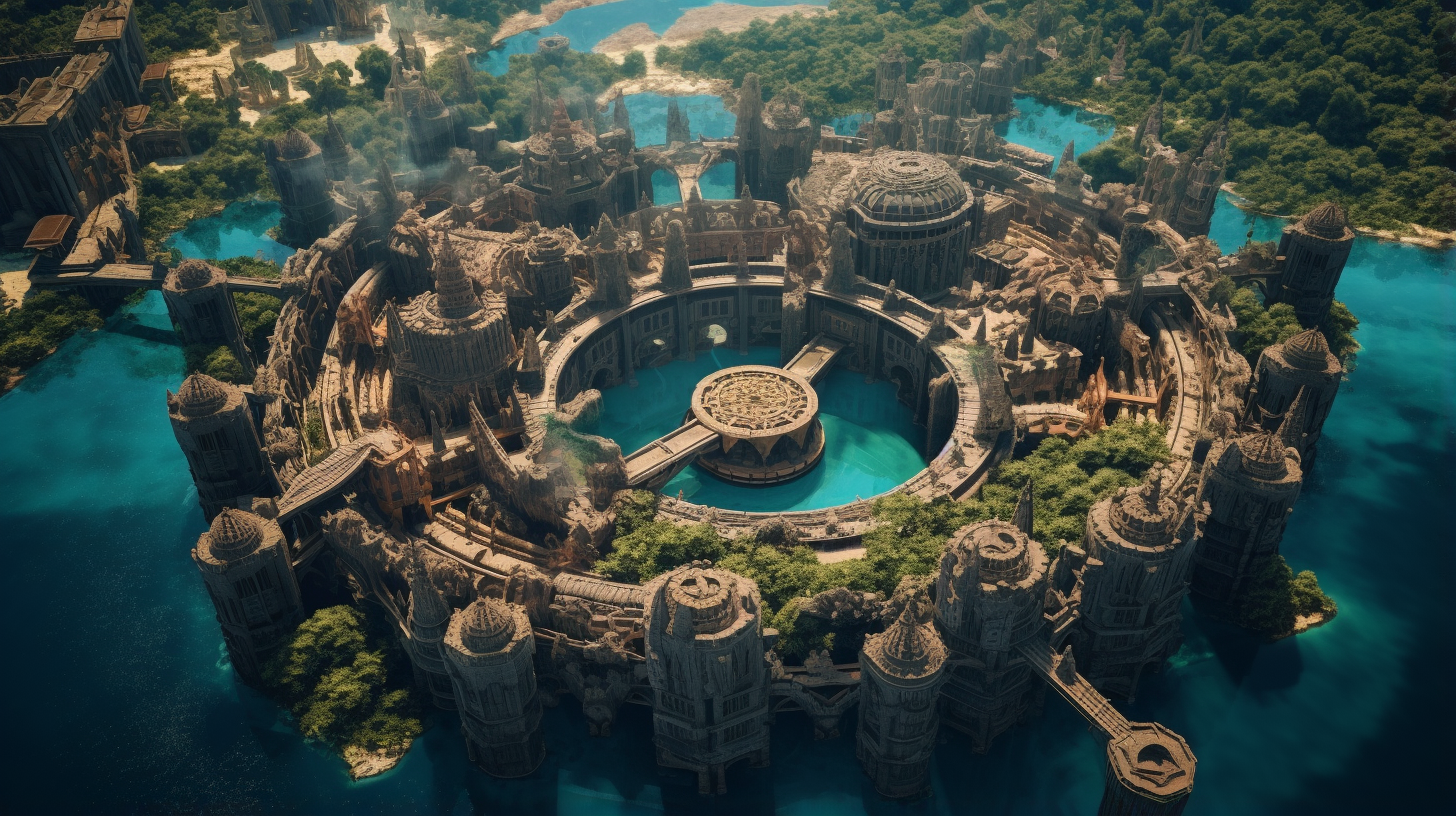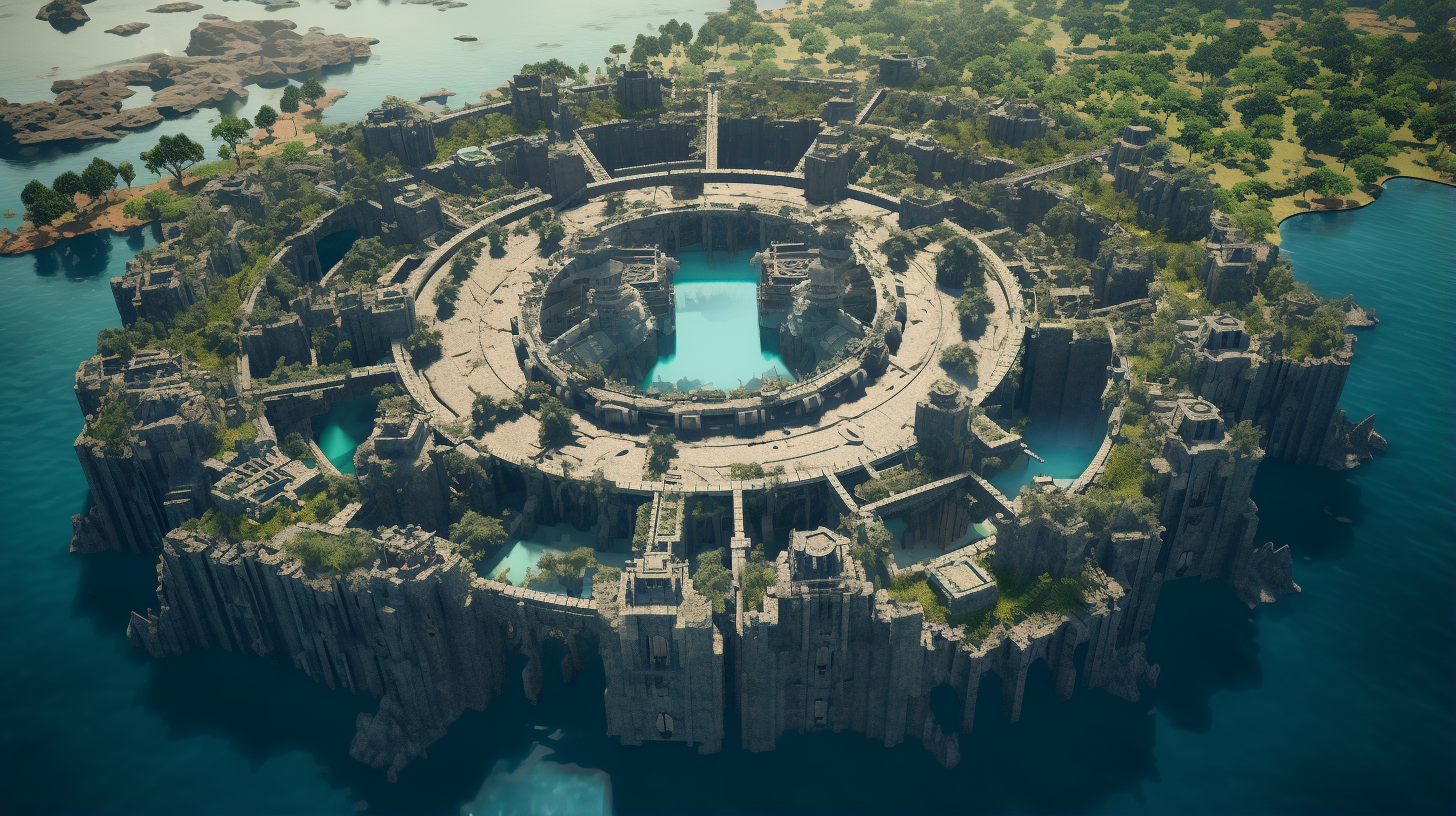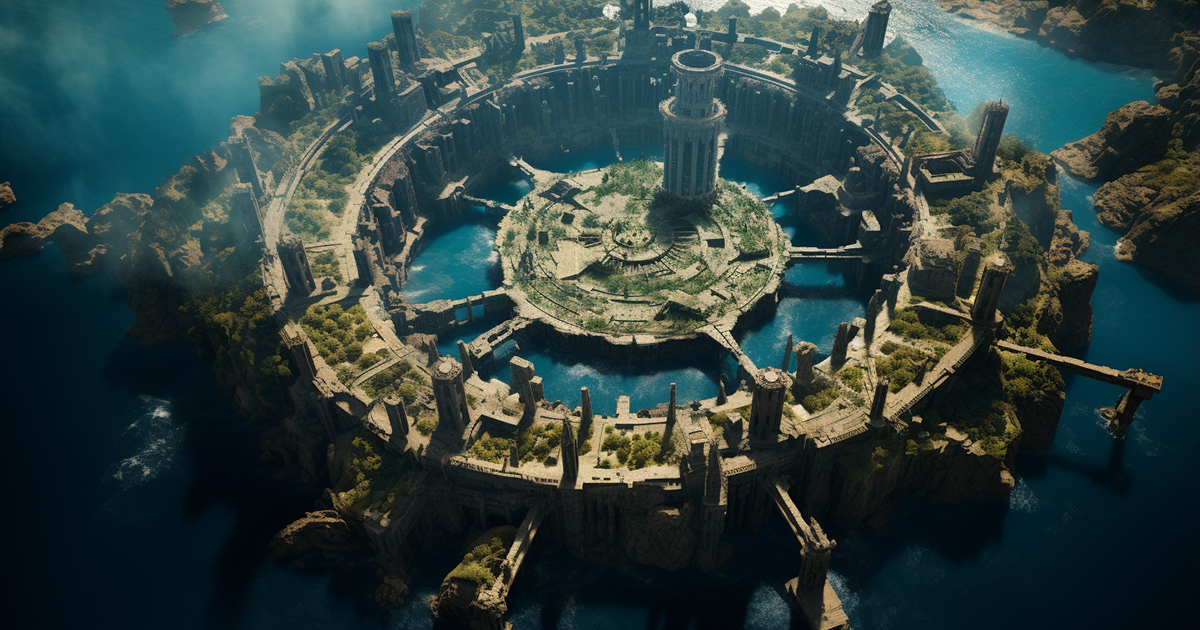Deep within the ancient city of Athens, Greece, lies a precious treasure housed in the revered chambers of the National Archaeological Museum. An object of fascination, murmuring stories of bygone eras – the mysterious Poseidon of Melos, a sculpture hailing from the 2nd century BC.
This ancient relic, embodying the essence of the Greek god Poseidon, forms a crucial element in the cryptic mosaic of a forgotten civilization – Atlantis.
As told by the philosopher Plato, the tale unfolds with Poseidon, the deity of the seas and the founding figure of Atlantis, assuming a central role in this captivating saga. It is a narrative of celestial beings reshaping the world in a mythical contest.
Legend has it that Poseidon discovered an island, encountered a mortal woman, and from their union, ten pairs of twins were born. The firstborn, Atlas, was chosen by Poseidon to lead Atlantis.
Thus, the island adopted the name of this distinguished lineage, while the vast surrounding ocean was dubbed the Atlantic in tribute to Atlantis.

The Atlanteans, descendants of Poseidon, emanated a divine presence comparable to that of gods. Endowed with remarkable powers, they flourished in a society enriched with advanced technology and plentiful resources.
But were the Atlanteans truly celestial entities, elevated by their lineage and technological marvels? This notion, though fantastical, poses profound queries necessitating an exploration of the mythology surrounding Atlantis.
Insights from Plato suggest a potential hybrid race born from the mingling of gods and mortals, hinting at a tale of genetic experimentation and extraterrestrial involvement that gave rise to a civilization of mixed beings.

The enduring enigma of Atlantis lies in its elusive nature – its whereabouts veiled in ambiguity. Various theories place Atlantis in diverse settings, ranging from Antarctica to the Mediterranean and even Cuba.
One intriguing hypothesis portrays Atlantis not as a terrestrial entity but as a celestial craft venturing into interstellar voyages, akin to a spacecraft navigating realms beyond.
Ancient Greek lore often speaks of stars descending from the heavens, giving birth to islands in the vast seas. Could it be that Atlantis, too, departed from Earth, impelled by an imminent cosmic occurrence?
This concept aligns with global folklore depicting seekers of wisdom or entities fleeing earthly catastrophes like floods or doomsday scenarios.
Video:
In this reimagining of the Atlantis narrative, we voyage through the murky passages of history, pondering the existence of a mystical society that once graced our world. The idea of Atlanteans as hybrids, impacted by alien encounters, compels us to untangle the enigmatic tales of ancient times, where truth intertwines with legend.
Whether Atlantis was a terrestrial domain or an otherworldly vessel, it remains a enduring puzzle that urges contemplation of our cosmic position amidst the mysteries that elude our comprehension.
